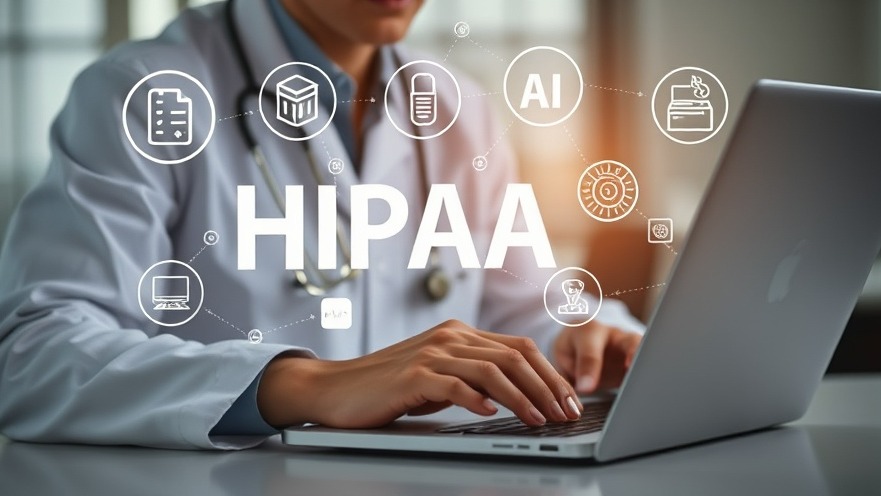
AI's Role in Modern Healthcare: A Complex Relationship
The rise of artificial intelligence (AI) in healthcare brings about exciting opportunities for patient care, especially for concierge health practitioners aiming to enhance their practices. Being at the forefront of medical advancements, AI can transform patient diagnosis, treatment recommendations, and overall healthcare experiences. However, it also poses substantial compliance challenges as it intersects with established regulations like HIPAA.
Navigating HIPAA Compliance Challenges
Since its inception in 1996, HIPAA has primarily focused on the protection of patient health information in traditional healthcare setups. Yet, the rapid evolution of technology has opened avenues that HIPAA does not adequately address. The emergence of AI technologies presents a compliance conundrum. As healthcare providers increasingly adopt AI tools to bolster decision-making and patient engagement, they must contend with how these innovations fit into regulatory frameworks that were not designed for them. This represents a critical juncture for concierge health practitioners who balance innovative care with strict adherence to regulations.
Understanding AI's Unique Benefits
AI holds considerable potential not just for improving clinical productivity but also for influencing revenue streams through intelligent marketing strategies. With the ability to analyze patient data, AI can provide tailored recommendations for supplements or over-the-counter medications during shopping experiences. Concierge practices stand to benefit immensely by integrating these technologies into their operations, making patient interactions more meaningful and personalized—ultimately enhancing patient satisfaction.
Current Trends in AI Integration: A Survey Insight
A recent survey conducted by McKinsey highlighted the healthcare industry's shifting perspective towards AI. The results indicated that 72% of healthcare executives are either implementing or testing generative AI tools. Among them, 60% report that their investments are yielding positive returns. For concierge health practitioners, these statistics emphasize the urgency of embracing AI and how collaboration within compliance frameworks can pave the way for smoother integration into existing practices.
Opportunities for Collaboration with Compliance Experts
The integration of AI within healthcare also invites new stakeholders into the compliance process. With more entities interacting with patient data, collaboration with compliance experts becomes necessary. By bridging the gap between emerging technologies and regulatory requirements, concierge providers can effectively navigate the complexities of HIPAA while implementing innovative solutions that enhance patient care.
The Future: Balancing Innovation with Security
As AI continues reshaping healthcare, understanding its implications on HIPAA compliance will be crucial for concierge health practitioners. They must weigh the risks against the rewards—ensuring patient data security while striving for technological advancement. Notably, AI’s ability to enhance patient outcomes should not come at the expense of compliance. Practitioners need to engage proactively with both technology vendors and compliance specialists to develop robust strategies that meet regulatory mandates without compromising on innovation.
Conclusion: Taking Action Now
For concierge health practitioners, the technological landscape can feel overwhelming, but the potential to improve practices is significant. Engaging with emerging AI technologies can not only streamline operations but also open paths for growth and community engagement. By collaborating closely with compliance experts, practitioners can ensure they remain compliant while leveraging innovative tools to better serve their patients. Embrace these changes and ensure your practice thrives in a tech-advanced future!
 Add Row
Add Row  Add
Add 






Write A Comment